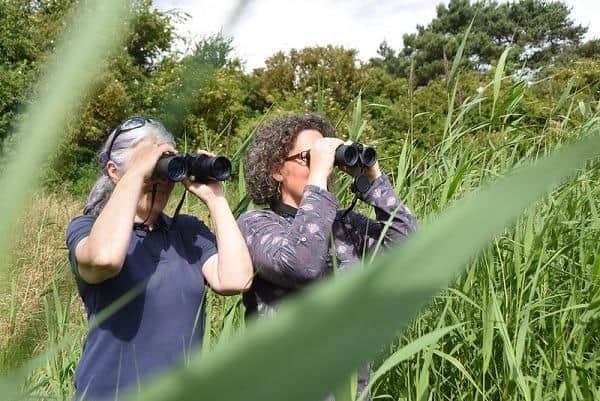Falkirk battles climate change with £700,000 nature fund
and live on Freeview channel 276
The initiatives were delivered in 2021/22 to restore nature, safeguard wildlife and improve local biodiversity across the area thanks to £289,000 secured from the Scottish Government’s Nature Restoration Fund and a further £407,000 committed by Falkirk Council and partner organisations, including the National Lottery Heritage Fund, the Scottish Landfill Communities Fund, and Scotland Loves Local.
Councillor Paul Garner, council spokesperson for economic development welcomed the fact the significant sum of money had gone to such deserving projects.
Advertisement
Hide AdAdvertisement
Hide AdHe said: “There has never been a more crucial time to help nature and improve conditions for biodiversity to thrive and flourish against the very real threat of the global climate emergency.


"These positive and important projects support, restore and enhance wildlife and habitats throughout our area and everyone involved should be very proud of their involvement and contribution to giving nature a helping hand.”
One of the projects has increased nesting sites for the common tern – a species on the UK Amber list for birds of conservation concern – thanks to three new tern nesting rafts installed on the Bothkennar lagoons at a cost of just under £10,000.
Falkirk Council worked with the RSPB, Falkirk Wildlife Volunteers Group to install the rafts which are monitored by the Countryside Rangers.
Advertisement
Hide AdAdvertisement
Hide AdOther projects sharing in the funding included Zetland Park pond gaining £350,000 to allow the creation of a naturalised pond benefiting a wide range of species and Kinneil Local Nature Reserve receiving £4000 to restore and enhance the grassland habitat critical for pollinators and other wildlife.
The Rumlie in Slamannan got £101,000 to allow the creation of new areas of meadow habitat and improve access, while Kinneil Estate and South Bantaskine Estate used £8500 to control invasive non-native species and the removal of cherry laurel and rhododendron.
Polmont urban woodland project received £62,000 to allow the creation of over four hectares of new woodland habitat in council owned woodlands around the Polmont area and £2000 enabled better Been Goose conservation, paying for thermal night imaging equipment to improve monitoring data for local, national and international conservation efforts.
Inchyra Park used £9000 of funding to create a new meadow habitat, water features and plant trees, while Avonglen wildlife site used £17,000 to introduce a new pond habitat to support the great crested newt population and Zetland Park used £132,000 to rejuvenate its historic rose garden, making it more resilient to increased rainfall.
Advertisement
Hide AdAdvertisement
Hide AdThe ten projects were supported by a number of organisations including – the Green Action Trust, the Friends of Zetland Park, the Zetland Park Rose Garden Action Group, Scottish Wildlife Junior Rangers, TCV, Falkirk Wildlife Volunteers, RSPB, Bean Goose Advisory Group, the Friends of Inchyra Park, volunteers from Forth Valley College, and The Woodland Trust.
Council officers and partners are now busy working up plans for new projects to spend this year’s Nature Restoration Fund allocation from the Scottish Government.
Comment Guidelines
National World encourages reader discussion on our stories. User feedback, insights and back-and-forth exchanges add a rich layer of context to reporting. Please review our Community Guidelines before commenting.
